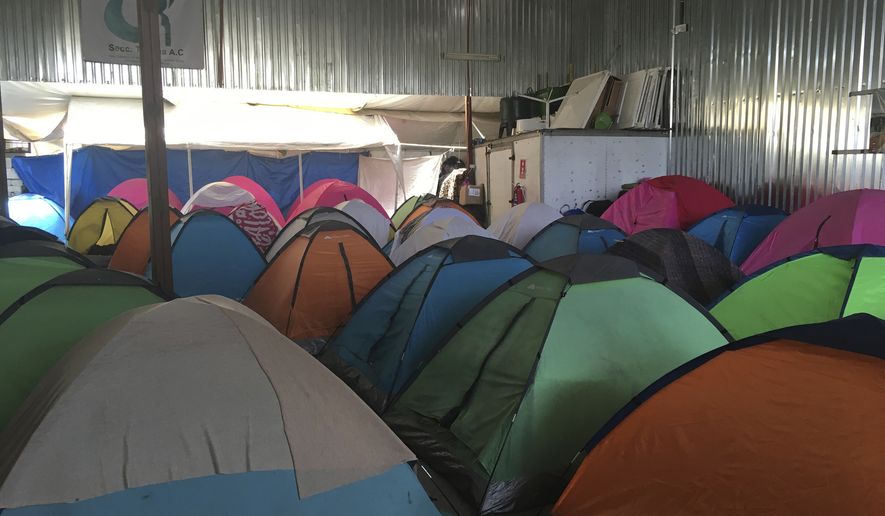As the illegal immigrant caravan arrives at the U.S. border, Homeland Security Secretary Kirstjen Nielsen renewed her promise Wednesday night to prosecute as many of them as possible once they attempt to enter the country.
Ms. Nielsen also said those presenting false asylum claims — and even those who attempt to coach the migrants on how to make bogus claims — could face prosecution.
And she told those with valid asylum claims they should be making them in Mexico, where they are now, rather than skipping straight to the U.S., since Mexico is deemed a safe county where they can find relief from whatever they’re fleeing at home.
The caravan, which organizers say is now about 600 Central Americans out of perhaps 1,500 who started off on the journey, has turned into a major test of the Trump administration’s willpower, versus immigrant-rights activists ability to use U.S. law against the administration.
It’s also giving Ms. Nielsen and Attorney General Jeff Sessions a chance to show they’ve taken to heart President Trump’s admonitions about stopping illegal immigration.
“The smugglers, traffickers, and criminals understand our legal loopholes better than Congress and are effectively exploiting them to their advantage,” Ms. Neilsen said Wednesday. “This president fully understands the threat this poses to Americans and has been crystal clear since the beginning of his administration that we will protect our borders and our sovereignty.”
Ms. Nielsen is slated to testify to Congress Thursday morning, where the caravan is also likely to be a hot topic.
The Central Americans argue they’re refugees fleeing rough conditions back home — particularly in Honduras, which is suffering political unrest.
They argue they deserve asylum in the U.S.
The caravan first mustered in southern Mexico in late March and has been making its way north since. Mexican officials did intervene, saying they deported at least 400 of the caravan’s members and promising to offer asylum to others who earned it.
But many in the caravan said they were determined to make the U.S. to get better jobs or unite with family already here.
That’s the case for Manuel Enrique, a 34-year-old from El Salvador who has been previously deported but is determined to get back to the U.S. where he says his children live — including two with autism. Pueblo Sin Fronteras, a caravan organizer, said Mr. Enrique will claim gangs have made it “impossible for him to live in El Salvador after being deported.”
But they also said his chief goal is to get back to his children.
“He doesn’t want his children growing up without a father and he wants to make sure they can come to him for support, friendship, and guidance,” the organization said.
That’s the sort of claim that’s going to test U.S. law.
To win asylum, someone is supposed to prove persecution back home because of race, religion or membership in some other protected class. Overall violent conditions aren’t supposed to be enough to qualify.
Complicating matters is the fact that lodging an asylum claim is relatively easy, and because of long backlogs in the immigration courts it usually means someone can remain here for years while their claim gets sorted out. That serves as an incentive to illegal immigrants to make the attempt no matter what, hoping to disappear into the shadows, Customs and Border Protection Commissioner Kevin McAleenan told Congress earlier Wednesday.
But Pueblo Sin Fronteras insisted the caravan’s participants have valid claims, and said it’s counting on Homeland Security “to respect the international treaties regarding asylum.”
The group has asked supporters to be on hand later this week when caravan members plan en masse to test the border in San Diego and make their asylum requests.
“With enough support, eyes, and solidarity on both sides of the border we can ensure that the caravan members’ human rights are respected, and that they are not retaliated against for exercising their rights publicly,” the group said.
• Stephen Dinan can be reached at sdinan@washingtontimes.com.




Please read our comment policy before commenting.